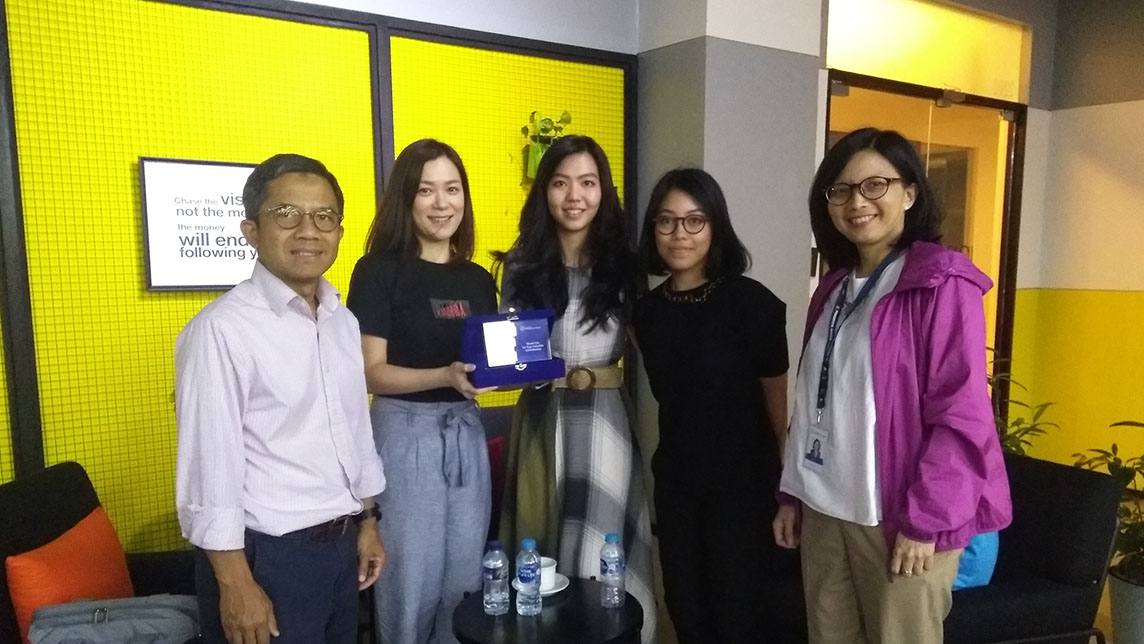Weddings are a big business in Indonesia. Pre-wedding photoshoots alone have grown more extravagant over the years. Big bucks are also splashed on luxurious gown rentals, makeup and grand receptions. No wonder the wedding planning market is a $7bn industry in Indonesia.
The market has also gone online in the recent years. Bridestory, founded in 2014, is the country's largest wedding planning e-commerce platform today, matchmaking more than 3.5m couples to over 20,000 wedding services vendors annually. It was acquired by e-commerce unicorn Tokopedia last year for $30m.
For industry newcomer Canika, how could it expect to compete against the might of well-established names like Bridestory?
“The simplest pitch is, Canika is like the Traveloka for your wedding,” Canika's CEO and co-founder Aninda Annisa told CompassList in an interview, referring to the Indonesian online travel startup, today Southeast Asia's largest player and a unicorn.
Canika was created to fill a gap in the wedding planning market – the lack of budget-friendly options, she said. These days, younger couples prefer to save money for other necessities, instead of committing to extravagant receptions for hundreds or even thousands of guests.
The cost of wedding packages for around 500-700 guests available on Bridestory averages IDR200m at least and can go up to IDR2 bn. On the Canika app, a similar-size package can cost as low as IDR50m, Annisa said. This has to do with the types of vendors Canika works with, which tend to be more “budget” ones.
Couples use Canika to research their options in nine categories, including venue, makeup artist, car rental and photographers. It's a more time-consuming way of planning a wedding than hiring a wedding planner, known as event organizers (EOs), as is more commonly done in Indonesia. Hiring a mix and match of vendors on Canika is also a more economical, because EOs tend to have a limited number of partnering vendors.
Students inspired by Traveloka
Annisa came up with the initial idea of affordable online wedding planning in 2018, after reading Disruption, a book about operating outside the confines of conventions to create something truly innovative at work and in our personal lives. The author, Indonesian academic-businessman Rhenald Kasali, highlighted Traveloka as a unicorn that accomplished early success by selling to budget travelers via its comparison website for airline tickets.
“Canika began as a course assignment for Leadership and Management Practice,” explained Annisa, who had to create a tech business model with her coursemates at Bandung Institute of Technology (ITB), Rajna Habibah and Karina Alifa.
The trio's project won top marks at the end of the course in February 2019. The name Canika was inspired by the Sundanese word, “Can nikah,” meaning “not yet married.” Sundanese is a Malayo-Polynesian language of natives from West Java and Banten.
The group further developed Canika for another course assignment subsequently. Seven more team members joined the project, taking charge of finance, operations and marketing. To encourage the students to stayed focused on developing the Canika project further, ITB was the first to fund the platform with an undisclosed amount.
The same year, the Canika team competed in the Young Entrepreneur Summit for college students held by UI Studentpreneur. They also managed to secure funding and support from The Ministry of Research and Technology of the Republic of Indonesia (Kemeristek) through its Technology-Based Startup (CPPBT) program. The team members are still pursuing their studies while running Canika.
"We were always lucky," said Annisa, thankful that more funding always seems to come in whenever they were running out of money and becoming dispirited.
Overcoming challenges
It has not been completely smooth-sailing for the Canika team while trying to build the brand to attract customers and recruit wedding-related vendors, many of whom had not heard of the new platform.
The co-founders are persisting though, hedging on the efficiency of the Canika app in connecting couples with vendors. Registering to use Canika is free.
“We know that the planning of tradition-driven events is not easy. Some are rigid, even too rigid. With Canika, our packages ensure that you will not have to wreck your brains trying to figure out how to do it and make decisions on choosing the right vendors,” Annisa said.
This is key because Canika believes that the Indonesian tradition of inviting too many people is difficult to avoid. It becomes a challenge for couples who need to stay within their budgets.
“This is the value of what we are selling. In Indonesia, a wedding is not just about the two people getting married, it's about their two families and their work friends, hangout friends and many more people that the couple may not even know about,” she added.
“This is how we hope to stand out and disrupt the industry.”











